WHEN DOES HEALTHY VISION MONTH TAKE PLACE?
May is National Healthy Vision Month. It is a great time to raise awareness about the most common eye diseases, their symptoms, how they can be avoided, and of course, proper eye health habits that must be maintained throughout the year.
WHAT EXACTLY IS HEALTHY VISION MONTH?
Healthy Vision Month raises awareness of the most common vision-threatening eye diseases, such as macular degeneration, cataracts, diabetic retinopathy, and glaucoma. According to the American Academy of Ophthalmology, these diseases affect over 37 million adults in the United States. Many of those affected suffer from vision loss, if not blindness. Recent research, however, indicates that making healthy choices and getting regular eye exams can help reduce a person's risk of vision loss. During Healthy Vision Month, we encourage everyone to learn more about these eye diseases, their effects and how to reduce the chances of vision loss through effective eye health practices.
FOUR OF THE MOST COMMON EYE DISEASES AND HOW THEY AFFECT YOU
AGE-RELATED MACULAR DEGENERATION
Age-related macular degeneration (AMD) is the most common cause of vision loss in people over the age of 60. AMD is a breakdown of the macula, the central point of focus in the retina, caused by thinning tissue in the eye that can deteriorate over time. Damage to the macula causes central vision blur, which can worsen over time. Blurred vision, wavy lines, and color blindness are common symptoms. While AMD has no cure, early detection and treatment can help reduce symptoms and preserve vision.
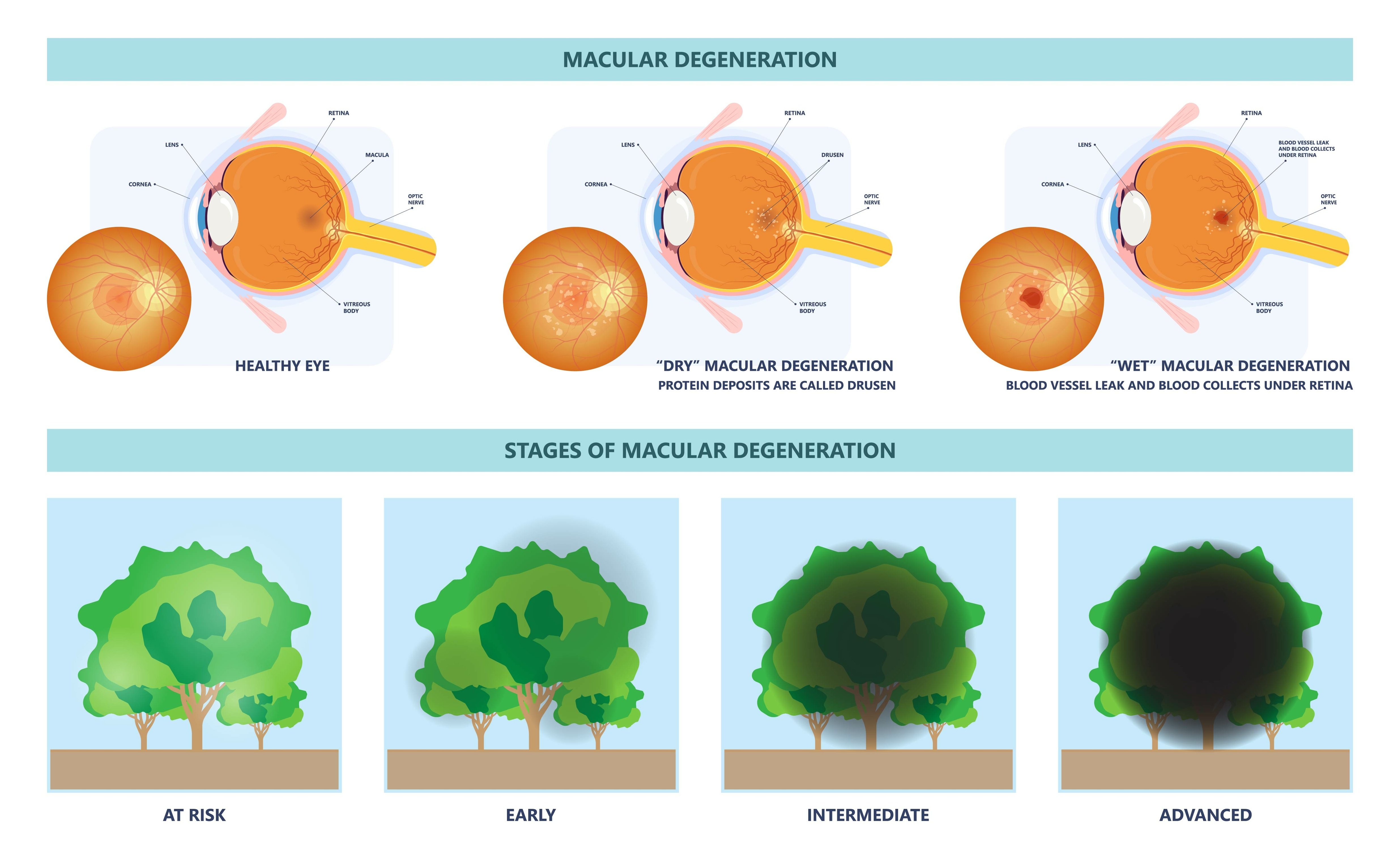
CATARACTS
Cataracts form when normal proteins in the lens of the eye break down and accumulate in cloudy clusters. If left untreated, this buildup can worsen and grow larger over time, eventually leading to total blindness. The most common cause of cataracts is aging. They can, however, form as a result of eye injuries or other trauma. Symptoms include light sensitivity, desaturated colors, and cloudy vision. Cataract surgery is performed by an ophthalmologist, a medical doctor who specializes in eye diseases and surgery.
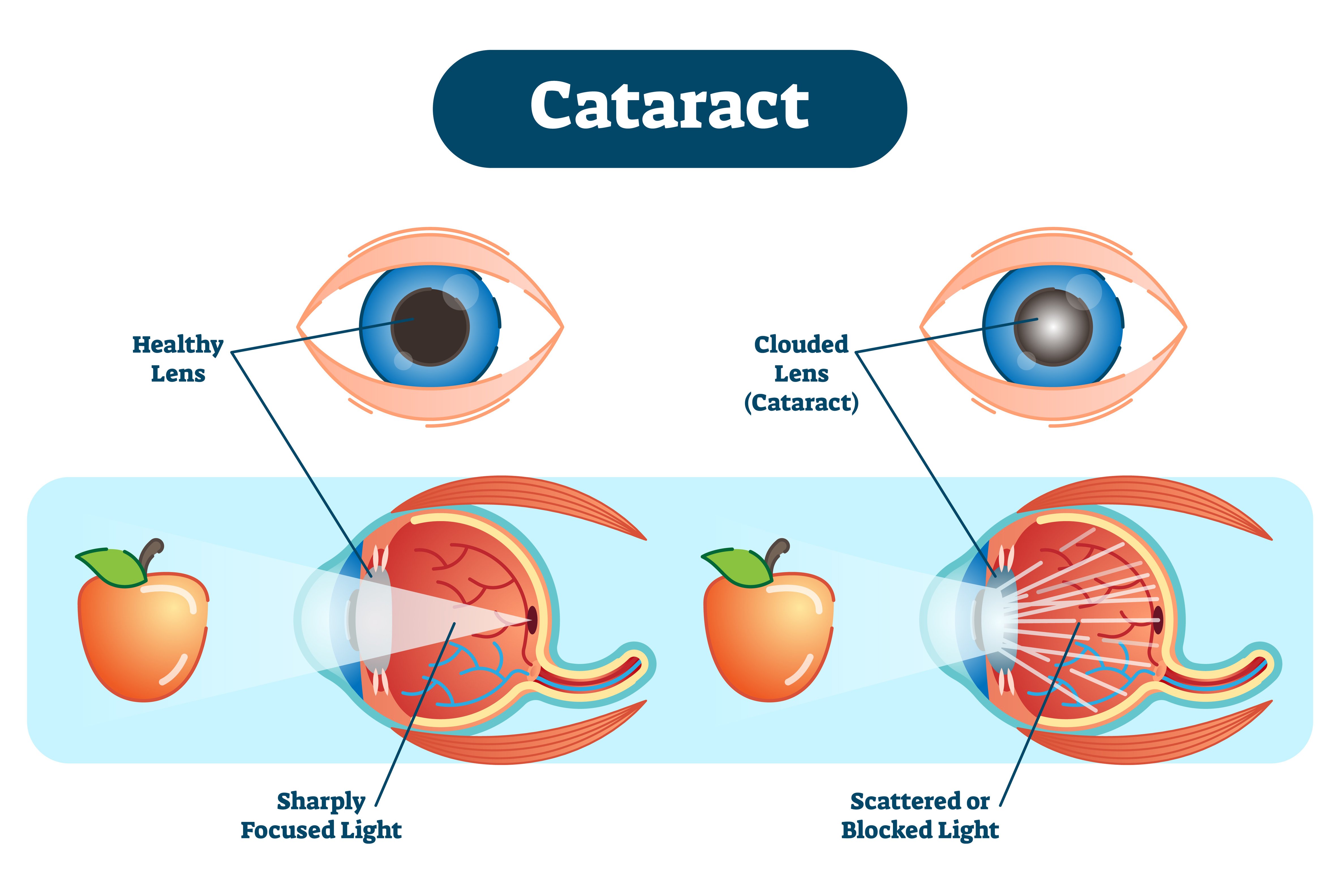
DIABETIC RETINOPATHY
Diabetes retinopathy is a common diabetes complication that affects the retina, which receives light and converts it into neural signals. These signals are then processed to produce visual recognition. Blood sugar levels that are too high can harm the blood vessels and tissue at the back of the eye. This can result in the formation of abnormal blood vessels on the retina. Vision problems and even blindness can occur if the retina does not receive the normal amount of blood flow. Vision changes, floaters, and poor night vision are all symptoms. The condition can be treated with injections, laser treatment, and eye surgery.
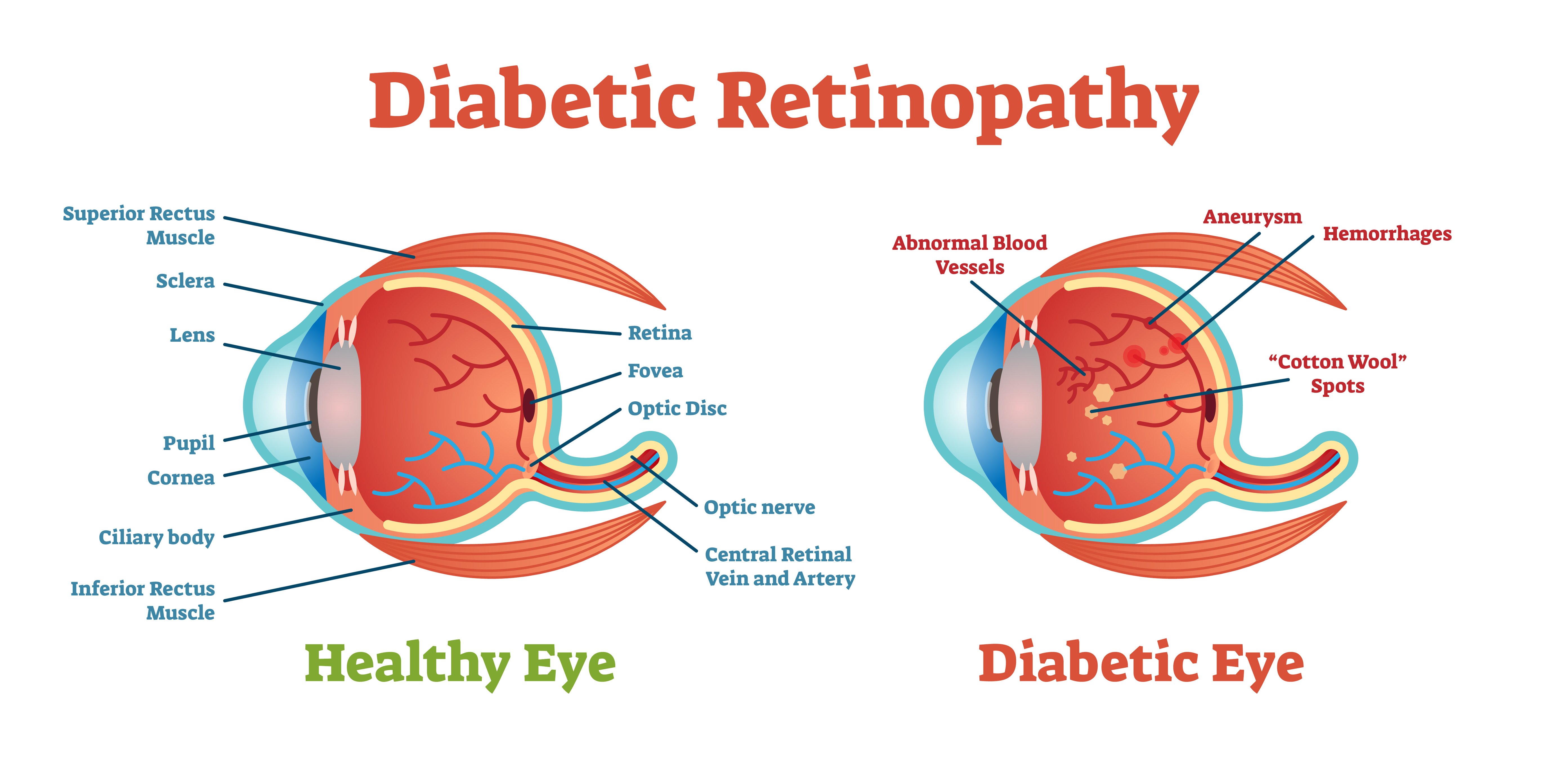
GLAUCOMA
Glaucoma is a disease caused by increased eye pressure, which damages the optic nerve, and oversees sending visual images to the brain. This increased pressure is caused by either abnormally high fluid production or a decrease in the ability of the eye to drain fluid. If untreated, glaucoma worsens over time and can cause permanent damage to the optic nerve, resulting in vision loss or blindness. Because most people do not notice symptoms of glaucoma until vision loss occurs, it is critical to have regular eye exams to check pressure levels. While there is no cure for glaucoma, there are treatment options to help manage the disease.
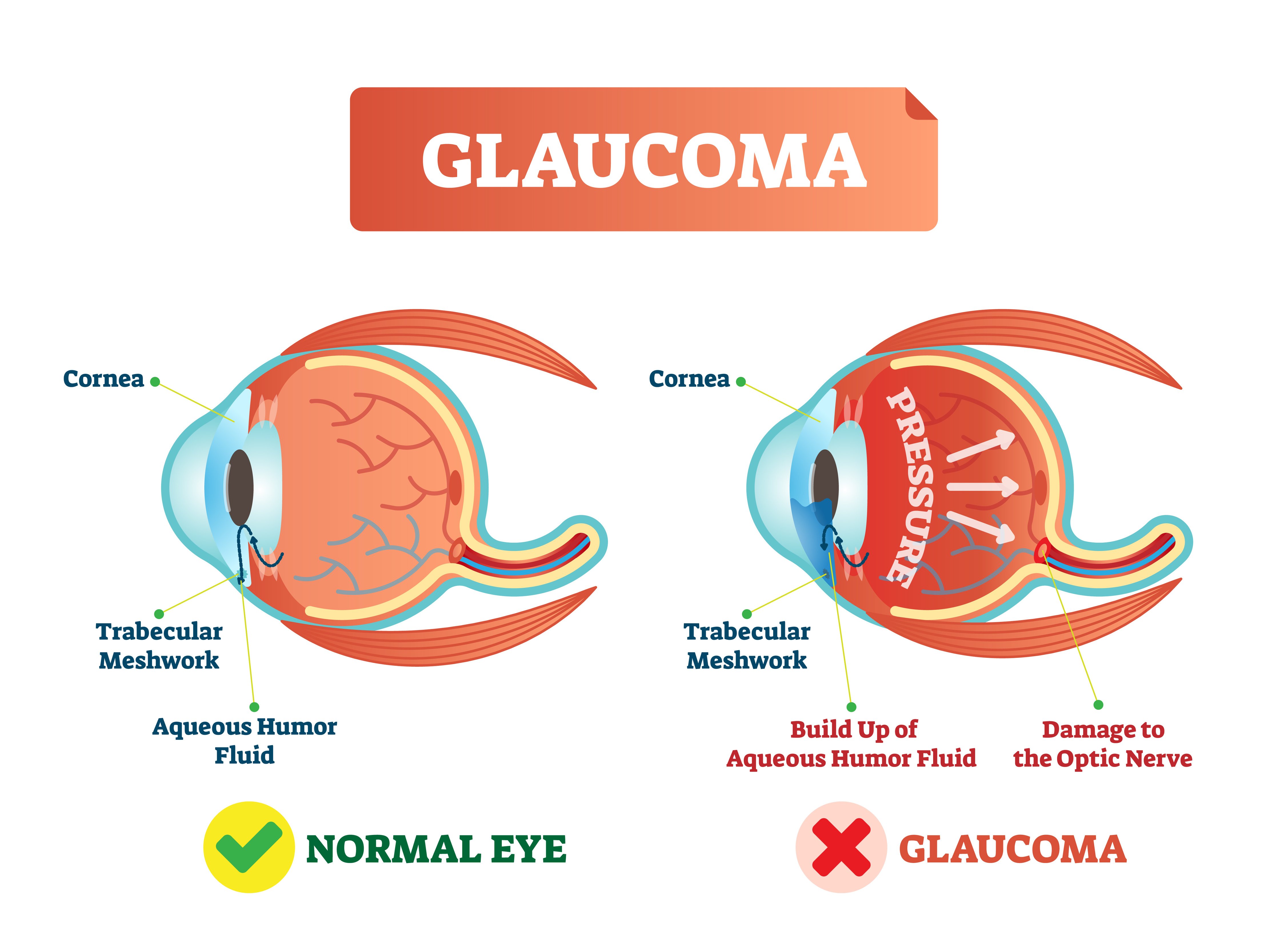
FOUR TIPS FOR HEALTHIER VISION
SCHEDULE YEARLY EYE EXAMS
Annual eye exams are the most effective way to maintain healthy vision and prevent the development of eye diseases. Eye exams aren't just for keeping your vision prescription up to date. Your eye doctor will also look for signs of major eye diseases as well as your overall health. Concentrate on prevention and detecting early signs of eye disease before vision loss occurs.

KNOW YOUR RISK
Certain risk factors are associated with eye disease. If you have a family history of macular degeneration, you may be at a higher risk of developing the condition as you age. When you develop diabetes, your risk of diabetic retinopathy rises. Cataracts and glaucoma are more likely to develop as a result of previous eye trauma and smoking. Furthermore, most eye diseases become more common with age. Discuss your risk factors with your eye doctor during your next eye exam.

MAINTAIN WHOLE BODY HEALTH
You may be surprised at how beneficial it is to maintain a healthy diet and an active lifestyle for your entire body, including your eyes. Those who exercise regularly and eat a diet rich in omega-3 fatty acids, vitamin A and vitamin C are less likely to develop eye health issues than those who eat a diet of sugar and fried foods. Make sure you incorporate the 10 nutrient-rich foods for eye health into your diet. Remember, foods that are healthy for your heart are also healthy for your eyes!

WEAR PROPER EYEWEAR
Wearing appropriate eyewear for the task at hand is critical to maintaining healthy vision throughout one's life. Wear sunglasses that are made with ZEISS sunglass lenses that have full-spectrum UVA and UVB protection when going outside to protect your eyes from the sun's ultraviolet rays. Wear protective eyewear when working on a construction site or with hazardous chemicals to protect your eyes from debris and splashes. Consider purchasing glasses with blue light filtering lenses like the ZEISS BlueGuard Lenses if you are staying up late on the computer to alleviate the symptoms of digital eye strain. As always, make sure your prescription is up to date so you can see clearly for the task at hand.
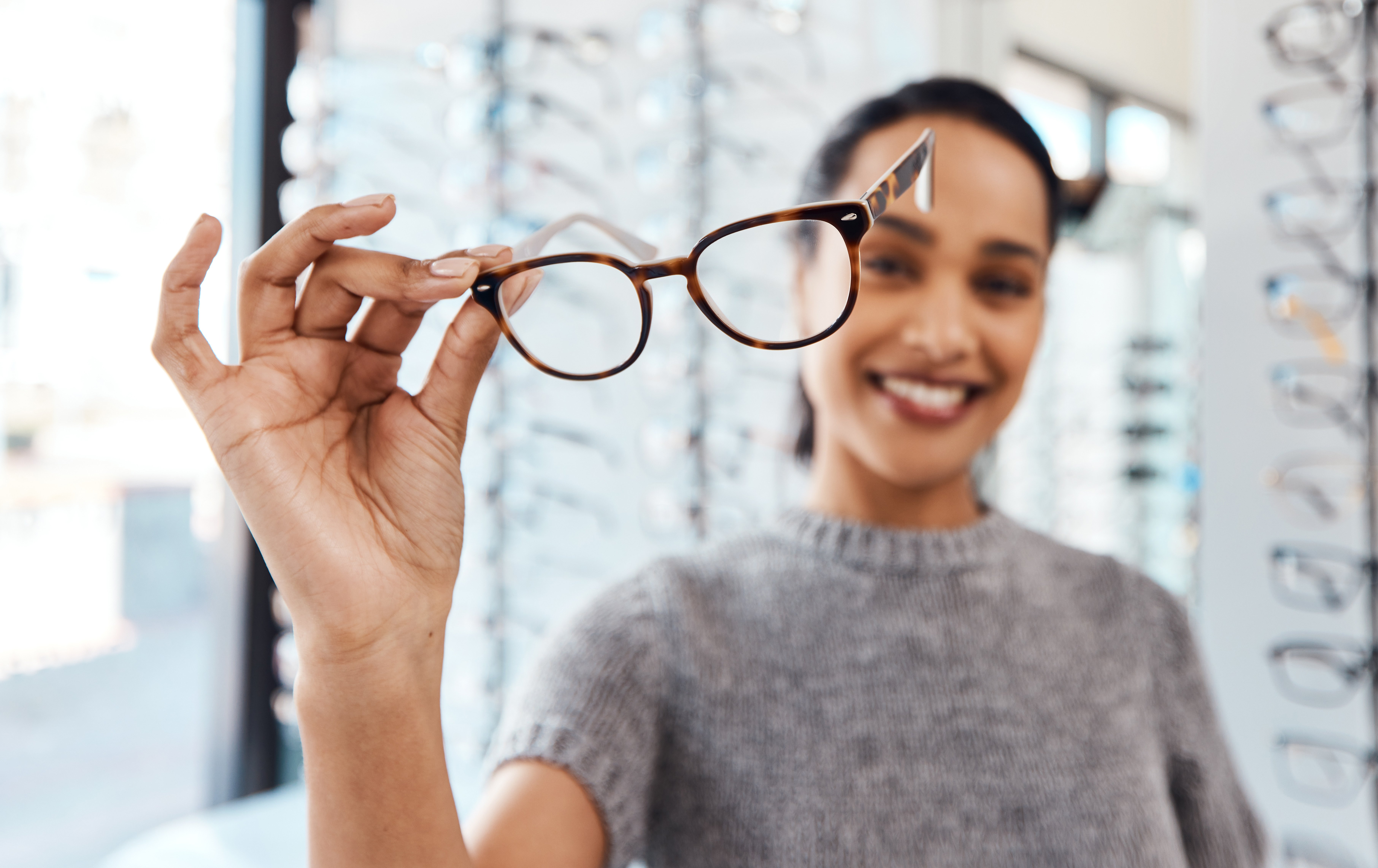
KEEPING YOUR EYES HEALTHY YEAR-ROUND
At Houston Eye Associates, we care about your eye health. So, whether you need to purchase a pair of frames, customize safety glasses, an annual eye exam, or more, Houston Eye Associates is your one-stop shop for all your eye care needs. With 20 locations around the greater Houston area, there is a location near you!
.jpeg)

